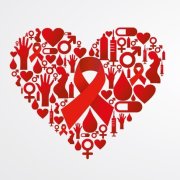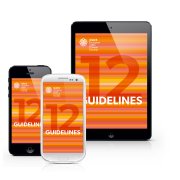Plenary lecture synopses
DAY 1
Knowledge gaps in SARS CoV-2 and HIV
1 July 2022 - 13:00-13:45
The Severe Acute respiratory Syndrom Virus 2 (SASR-CoV-2) caused the global Coronavirus disease 2019 (Covid-19) pandemic. While globally many infections and deaths were recorded after more than two years, Covid-19 had relevant impact on HIV care and prevention. At the same time people living with HIV (PLWH) were also at a greater risk of infection and severe disease. Within this session, the current knowledge on Covid-19 vaccination and therapy with a focus to PLWH will be addressed and current impact on HIV prevention, care and clinical practice will be presented and discussed. Knowledge gaps and research needs will be identified and possible implications for future trials and research concluded.
Speaker: Laura Waters, United Kingdom
Equality, diversity, and inclusion in trials and why it matters
1 July 2022 - 13:45-14:30
For the comprehensive clinical development of drugs for treatment of HIV infection a number of relevant factors should be taken into consideration. These pertain to the two main variables in the disease, the patient and the virus. Moreover, as a global epidemic; HIV/AIDS comes with regional specificities, which may also matter. Insights into these variables, their potential relevance for drug development and how these issues have be addressed for currently available antiretrovirals will be shared.
Speaker: Regine Lehnert, Germany
YING research ideas across Europe
1 July 2022 - 17:30-18:00
How can you make a difference in Europe with a YING research idea? When do you need a European network? And how can this impact the lives of the almost 3 million people living with HIV in Europe? To confront border crossing relevant clinical questions, we need nothing less than a unified European network of scientists starting in YING. In this session, based on our own YING initiatives but also taking other key European initiatives into account, we will share thoughts on what ideas would require a European response. We will give concrete examples of our initiatives, and share our experiences on potential success factors and pitfalls that might help you when creating your own YING research idea ready for Europe.
Speakers: Casper Rokx, Netherlands/Agata Skrzat-Klapaczyńska, Poland
DAY 2
Tops and flops
2 July 2022 - 8:30-9:15
This session will cover the most recent developments in the field of HIV treatment and prevention, including updates in guidelines and ways to implement newer treatment options into clinical practice. The research papers that have most impacted HIV science will be discussed and placed into the wider context of the clinical reality of different countries, to provide an insightful evidence base for use in clinical practice.
Speaker: Oana Săndulescu, Romania
Vaccination and cure
2 July 2022 - 9:15-10:00
An HIV cure is a high priority to bring an end to its pandemic. Major challenges for an HIV cure include the persistence of the viral reservoir, the virus genetic variability, immune dysfunction, and poor understanding of correlates of protection and post-ART rebound. Encouragingly, human models of HIV remission have revealed distinct mechanisms for long-term virus control that could be targets of novel therapies. Moreover, early administration of ART plus combinatorial interventions is a promising strategy towards establishing a functional cure for HIV. In this lecture, the current knowledge on HIV reservoir, recent cases of HIV cure and mechanisms of functional remission, and novel targeted immunotherapies will be discussed.
Speaker: Federico Perdomo-Celis, France

20th European AIDS Conference
15-18 October 2025 Paris, France

EACS Guidelines updated
The EACS 12.1 and the app are available for free on


Educational Programme
Training and educating the next generation of clinicians and researchers is an EACS core activity.

EACS Resource Library
Access all scientific content of EACS core activities! (members only)

Interim Guidance
Interim Guidance on the Use of Statin Therapy for the Primary Prevention of Cardiovascular Disease in People with HIV